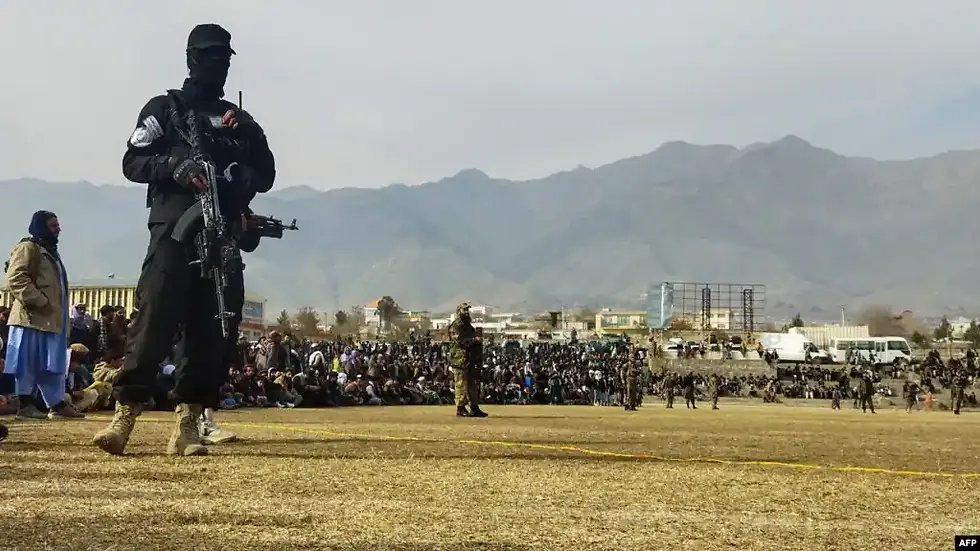The Wheels of Hope Stop in Kabul; When Books Become Victims of Ideology
- Tamim Attaiy
- Oct 9, 2025
- 3 min read

In a city where the sound of turning book pages once echoed through every corner, a heavy silence now rests over the wheels of the Charmaghz Mobile Libraries. The team of this cultural and educational initiative announced on Tuesday that due to “restrictions” and “operational challenges,” they have been forced to halt the operations of their 17 mobile libraries in Kabul; libraries that, since 2018, had opened a window of hope and knowledge for more than 40,000 children.
Freshta Karim, child rights activist and founder of the program, wrote in a statement: “We are pausing temporarily, but our mission to defend the right to education and the dream of a better future for Afghanistan’s children remains unchanged.”
But the reality is harsher than a “temporary pause.” The suspension of this program symbolizes the extinguishing of one of the last lights of free education in a country whose education system has fallen more than ever under the domination of the Taliban’s ideology.
When Education Becomes a Tool of Control
Since returning to power in August 2021, the Taliban have turned education from a human right into a tool for ideological engineering of society. Girls’ schools above the sixth grade have been closed, university programs in social and modern sciences have been eliminated or restricted, and religious and Sharia subjects have replaced natural sciences, philosophy, and modern history.
What the Taliban call “reform of the education system” is, in practice, a project to indoctrinate the next generation; a generation expected to learn how to “obey,” not how to “think.”
In such an environment, programs like the Charmaghz Mobile Libraries, which aimed to promote critical thinking, creativity, and a love of reading, become a threat to the Taliban’s intellectual order.
Books Exiled from the Streets of Kabul
With their bright colors and shelves filled with stories and illustrations, the Charmaghz Mobile Libraries had been roaming the streets of Kabul since 2018, introducing children to the world of words. More than one million children benefited from the program; many of them held a non-textbook book in their hands for the first time in their lives.
Now, however, these libraries—most of whose staff were women—have come to a halt. The Taliban, fearful of any form of free gathering, even for children, have indirectly made it impossible for such programs to continue: through tight control of movement, strict licensing requirements, and the interrogation of female volunteers over “gender mixing” or “promoting Western ideas.”
From Education to Ideological Propaganda
Afghanistan’s current education system is being transformed into a completely ideological structure. Teachers and school administrators are required to organize curricula based on Taliban ideology. In public schools, social science textbooks have been deleted or rewritten; in some areas, even mathematics and physics lessons have been replaced with religious narratives.
Instead of teaching critical thinking and science, children are being taught “how to remain faithful” and “how to identify the enemies of Sharia.” The result is generations distanced from scientific and modern worldviews, turned into instruments for perpetuating ideological domination.
Forced Migration of Knowledge and the Silencing of Women’s Voices
The suspension of Charmaghz’s activities is not merely an operational decision; it is part of a larger wave that, over the past three years, has forced educational, cultural, and human rights institutions to shut down or flee.
The majority of the staff of these libraries were women; women who bravely roamed the dusty streets of Kabul to encourage children to read. Today, many of them have lost their jobs and been pushed to the margins, while the Taliban still refer to “women’s right to education” as a “matter under consideration.”
The Future Outlook: Education in Exile
The Charmaghz team has announced that it will continue its activities through an organization called Fereshta in the United States and is developing a new program for Afghan children, which is expected to be launched in the spring of 2026.
But the central question remains: as long as education in Afghanistan remains hostage to ideology, what will the next generation of this country learn?
Conclusion
The suspension of the Charmaghz Mobile Libraries is not merely a logistical halt; it is a sign of the gradual collapse of the culture of reading, freedom of thought, and the right to independent education in Afghanistan.
In a country where girls are deprived of schooling, teachers are censored, and libraries have gone silent, the only thing that remains alive is the dream of education; a dream that may no longer continue in the streets of Kabul, but in exile.



